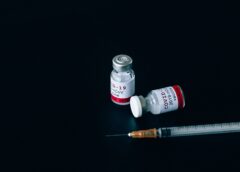
PATIENT IMPACT STATEMENT
AMERICAN ASSOCIATION OF KIDNEY PATIENTS (AAKP)
America’s Largest Organization Of Kidney Transplant Recipients And Living Organ Donors
Kidney transplant patients, based on the lifetime immunosuppressive medications they must take to stay alive, remain at severe risk of catastrophic illness and death due to COVID-19. The American Association of Kidney Patients (AAKP) thanks the U.S. Food and Drug Administration (FDA) for incorporating the unique insights of America’s kidney transplant recipients and the medical professionals who care for them in their authorization of a third vaccine dose. Kidney transplant patients dutifully fulfilled their societal responsibility to get vaccinated, yet as science has demonstrated, initial vaccines generated few or no antibodies or protections. Hopefully, today’s FDA action will help move these highly vulnerable patients closer to a greater level of protection as we await even greater innovations in vaccines and further protections from COVID-19. We honor the ongoing efforts of all first responders, healthcare professionals, civil servants, and employees of the pharmaceutical industry working to protect every American from this deadly disease.
For the past eighteen months, kidney transplant patients, like millions of other highly vulnerable immunocompromised patients, have lived in fear of infection, severe illness, and death. We have also witnessed the senseless loss of many of our dearest friends and fellow patients. During this pandemic, through either ignorance or a conscious and reckless disregard of human life, we have also seen the diminishment of our legitimate concerns for our own lives, the security of our families, and the gift of life afforded to us by brave organ donors. We respectfully remind elected and appointed leaders, as well as opinion influencers, across the nation that the American Ethos has historically been defined by both rugged individualism and a deep empathy for the most vulnerable in our society. In the midst of this ongoing pandemic, if we fail to recover our empathy for the most vulnerable and unprotected, we will have lost an essential part of our national identity and a key virtue that has always elevated America above nations who reject the inherent rights and dignity of every person.
America will prevail over the challenge of COVID-19 if we stand united as a people, demonstrate our inherent concern for one another as fellow Americans, and demand clarity, accuracy, and full transparency from leaders in whom we invest our trust.”
About the American Association of Kidney Patients (AAKP): Founded in 1969, AAKP is the largest kidney patient organization driving policy discussions on kidney patient consumer care choice and treatment innovations. By 1973, AAKP patient collaborations with the U.S. Congress and White House helped gain passage of dialysis coverage for any person suffering kidney failure, creating the only disease specific, taxpayer-funded entitlement program in America. That program, the End Stage Renal Disease Program (ESRD) administered by CMS, has saved over one million lives. In the past decade, AAKP patients have helped gain lifetime transplant drug coverage for kidney transplant recipients (2020); new patient-centered policies via the White House Executive Order on Advancing American Kidney Health (2019); new job protections for living organ donors under the Family Medical Leave Act (FMLA) from the U.S. Department of Labor (2018); and Congressional legislation allowing HIV-positive organ transplants for HIV-positive patients (2013). AAKP virtual platforms and social networks are internationally known for their impact. Follow AAKP on social media at @kidneypatient on Facebook and @kidneypatients on Twitter and visit our website at https://aakp.org/.
SOURCE American Association of Kidney Patients

Related Links
FDA Approval Of Kerendia To Help Slow Kidney Disease And Failure Associated With Type 2 Diabetes


